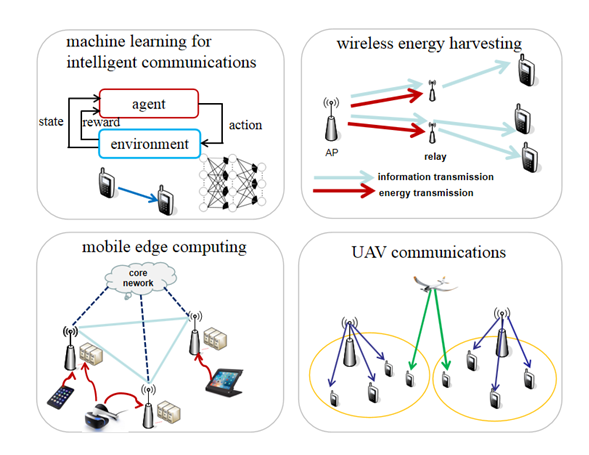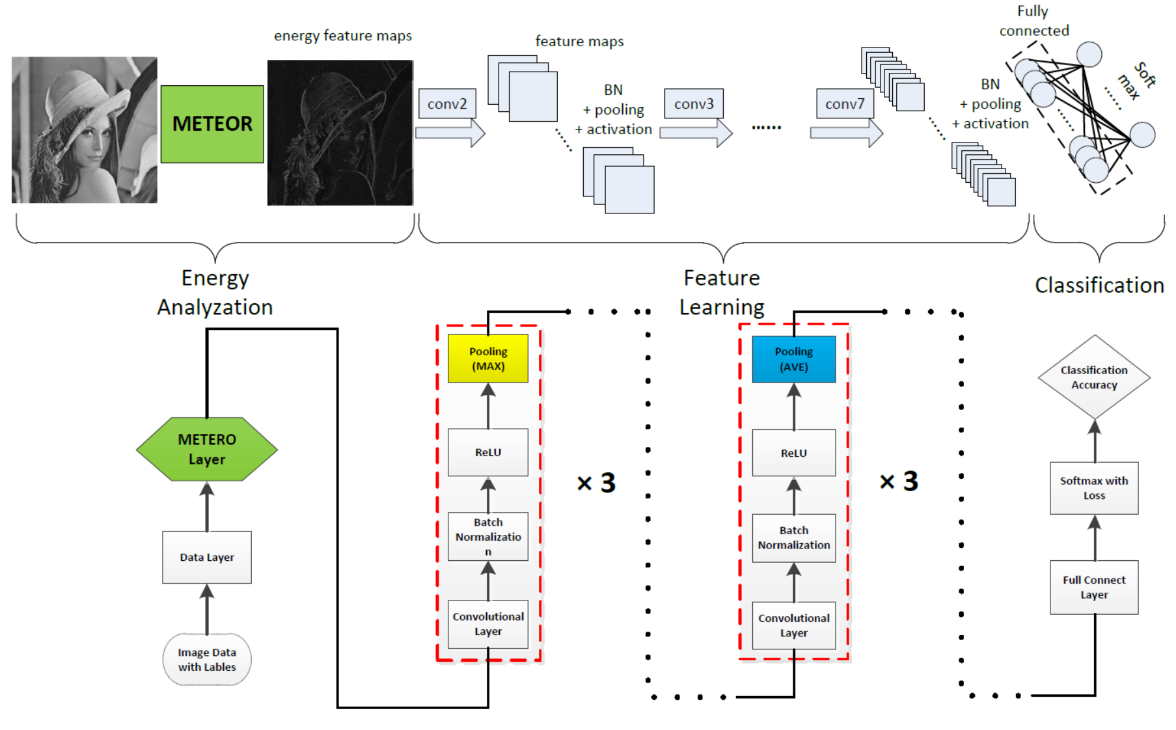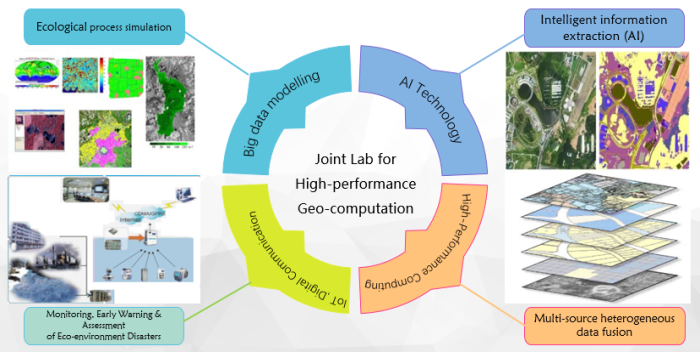1. Intelligent Communications and Mobile Edge Computing for 5G and IoT Systems
To meet the 5G and IoT systems’ communication and computation performance requirements, our research focuses on machine learning for intelligent communications, wireless energy harvesting, UAV communications, and mobile edge computing. To be specially, our research includes the machine learning algorithms design to achieve spectral-efficiency and energy-efficiency improvement in dynamic communication environments, the protocol design, the optimization of various network resources, and physical security for wireless energy harvesting systems, the coverage, dynamic trajectory optimization and cooperative communications for data collection and transmission in UAV communications, the dynamic offloading and the joint optimization of computation and communication resources to meet low latency in mobile edge computing systems.

2. Visual Media Forensics and Security
The low-cost tampering, unauthorized copying, and widespread sharing of visual media seriously threatens the healthy transmission of visual media as well as the legitimate right of media owners. In order to address the issue of malicious tampering and piracy of visual media, techniques of forensics and copyright protection are studied, including JPEG compression detection, image sharpening detection, source camera identification, image resampling detection, robust watermarking, reversible data hiding, visual secret sharing, and so on.

3. Environment remote sensing and Ecological process simulation
The research is centered on the requirements of environment and resource management, disaster prevention and mitigation, public safety. By integrating cloud computing, Internet of things (IoT), digital telecommunication and global positioning technologies, the key and new research areas include: 1. Ecological process simulation based on big data; 2. intelligent information extraction; 3. multi-source heterogeneous data fusion and simulation; 4. ecological environment disaster monitoring, early warning and evaluation.

